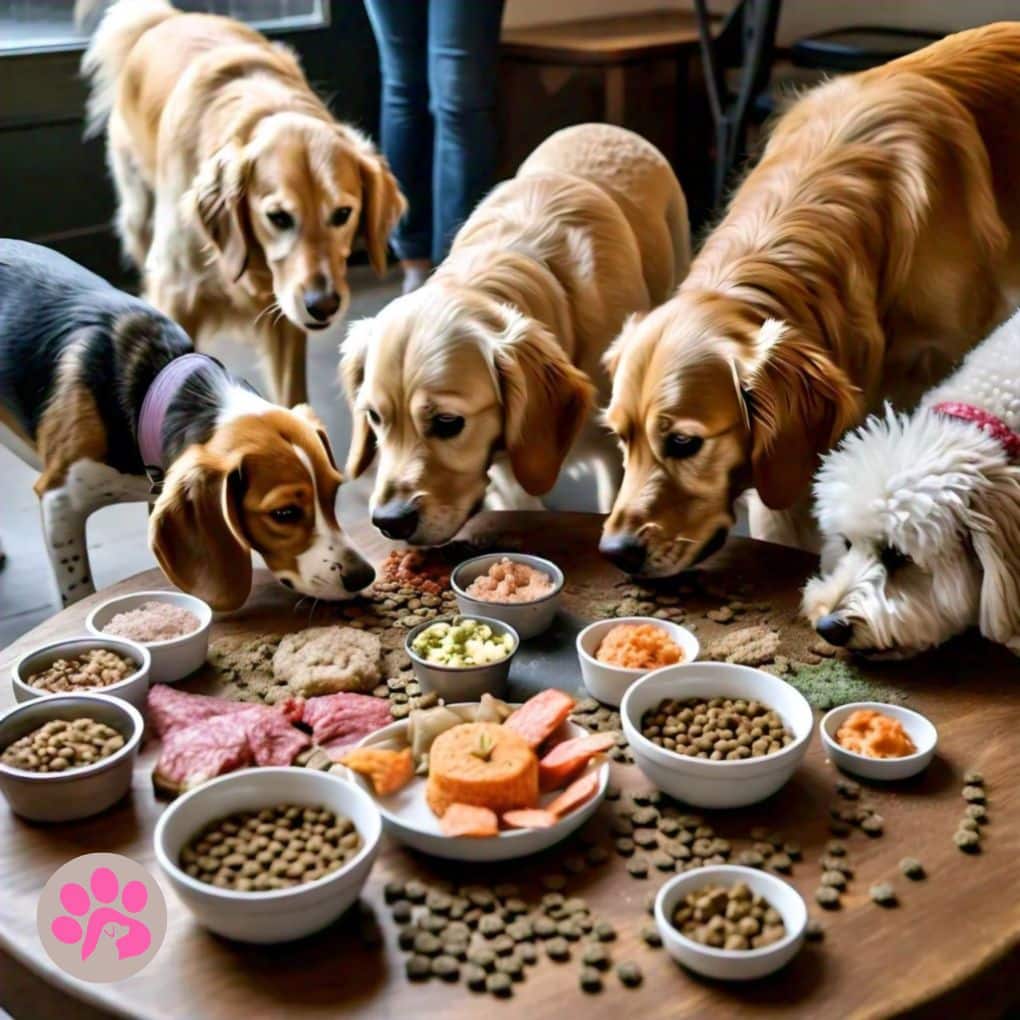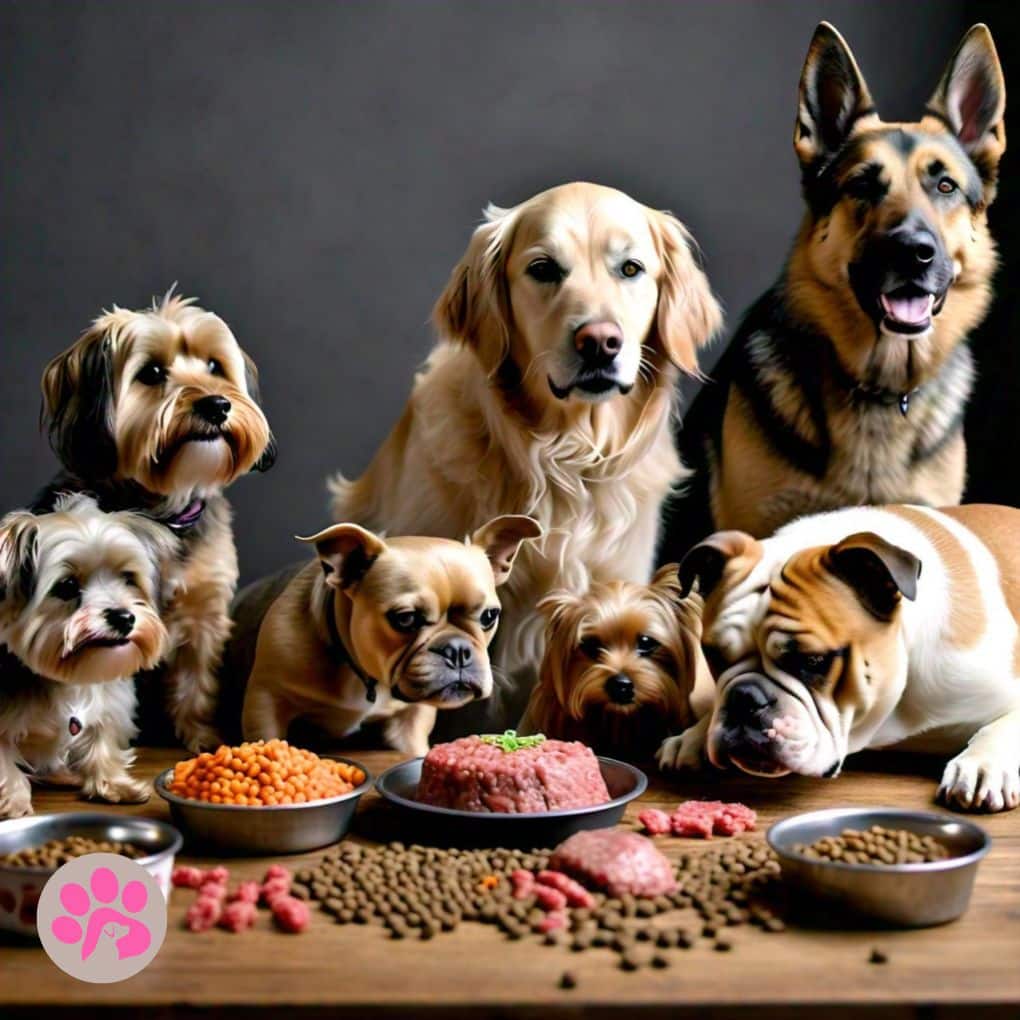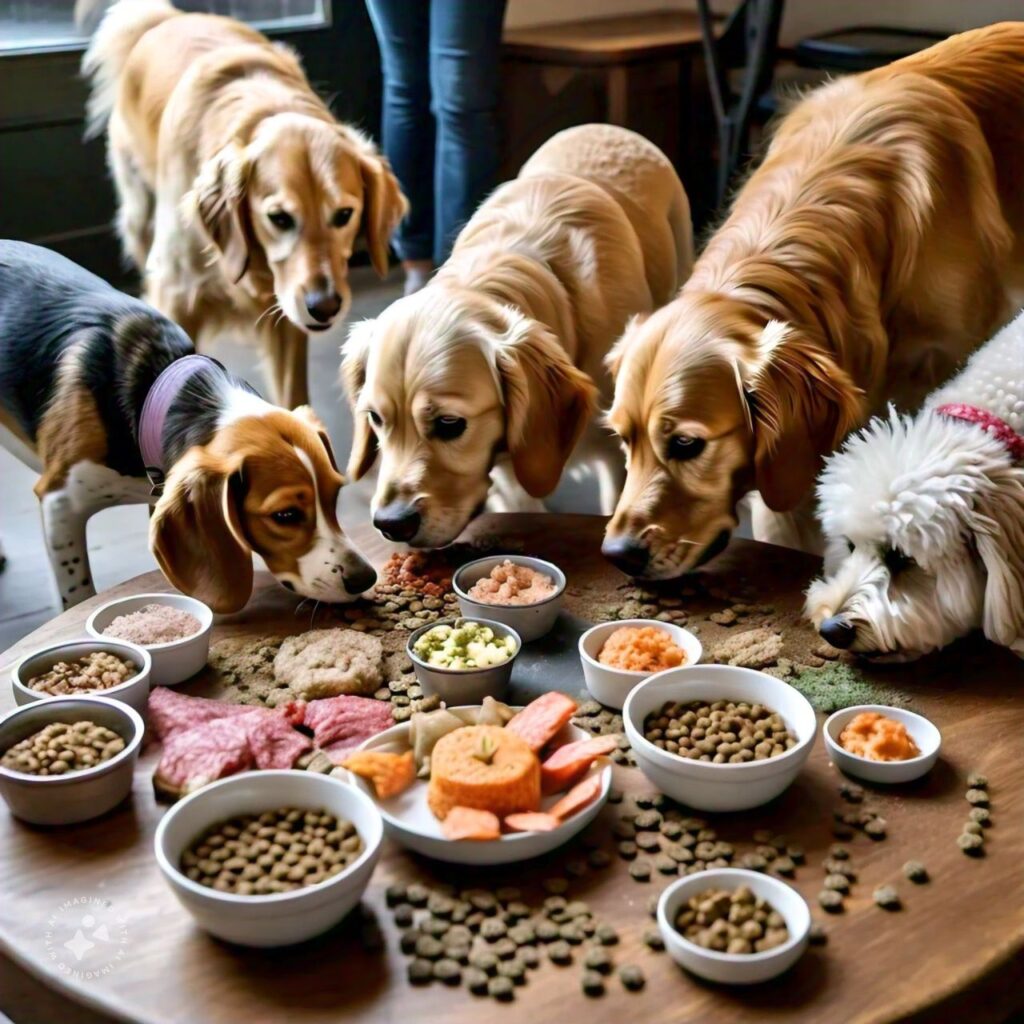As a veterinarian, I have witnessed the effects of not providing proper food for dogs. When you do not provide a balanced and suitable diet, it can result in various serious health problems. Just like people, dogs need a well-thought-out diet that provides for their unique requirements at any stage of their lives.
Often, dog owners fail to recognize the critical role diet plays in a dog’s health. A poor diet can lead to dull fur, bloating, gas, or irregular bowel movements. These are the most common signs that the dog’s diet is not sufficient for its needs. Over time, this can cause many problems that can lead to the breakdown of the immune system and cause infection with diseases. If you want your dog to have a long life span and a healthy life, you need to pay attention to the nutrition aspect. This article offers a complete guide to make sure your dog gets the necessary nutrients for a healthy, active, and happy life.
What are the essential nutrients in dog food?
Dogs need a variety of nutrients to stay healthy and active. Think of protein as a building block. They help your dog grow repair muscle and stay strong. Proteins are like fuel; they provide the energy your dog needs while also keeping their skin soft and their coat shiny. Carbohydrates are the quick energy boosters helping your dog stay active and playful throughout the day. Then there are smaller but mighty players in vitamins and minerals. They were behind the scenes support your dog’s immune system

They are for the strengthening of bones and make sure everything runs smoothly. This also helps in digestion, and the circulation of blood runs smoothly. If any of these nutrients are missing, it can lead to some big health problems, which is why a balanced diet is a key factor for your dog.
Types of Dog Food
When it comes to dog food, there are a few different options to choose from. Each category has its own pros and cons. A quick look at the most common types of dog food is given below:
Dry Food(Kibble)
Kibble, which is also called dry food, is probably the most common and convenient option for dog owners. It is easy to store. It is very affordable. And it has a long shelf life. One of the bonuses is that it can help keep your dog’s teeth clean by reducing tartar buildup. However, not all cable is created equally. Some lower-quality brands use filters and artificial ingredients, so it is important to check the label. And read the ingredients for choosing a high-quality option with real meat as a main ingredient.

Wet Food (Canned)
Wet food is a tasty and hydrating option for dogs. Red food is mostly pigged by the owners for their picky eaters. It typically has a higher protein and fat content compared to kibble. It is very good for the dogs that need extra energy or have specific dietary needs. One of the perks of wet food is that it can be easier to chew for dogs with dental issues. However, it can be on the pricier side and have a shorter shelf life. When the can is opened, you need to keep an eye on the portions and use any leftovers as soon as possible. Just like with cable, it is important to choose high-quality brands that do not include any artificial additives or fillers.
Raw Diet (BARF—Biologically Appropriate Raw Food)
The raw diet, often referred as BARF diet, is all about mirroring what dogs might eat in the wild. This approach includes raw meat, bones, organs, and sometimes fruits and vegetables. Many dog owners who follow this diet believe that it provides more natural and nutritional options for their dogs. It can lead to better court condition and improve the energy levels. But in preparing the raw diet, it needs very careful planning to ensure that it is balanced and safe. Sometimes raw meets and bones can cause stomach issues. It is very important to avoid bacterial contamination and nutrient imbalances. So you have to do your homework well or consult a veterinarian or a pet nutritionist. In addition to that, this diet can be more expensive and time-consuming then commercial portions. If you are considering raw diet, you have to be prepared for the extra effort, but some dog owners feel that it is worth for the potential health benefits
Homemade Food
Making your dog’s food at home can be a rewarding option that allows you to control every ingredient that goes into their meals. This approach lets you tailor the diet to your dog’s specific needs and preferences. That can be particularly beneficial for dogs with food allergies or sensitivities. Additionally, many pet owners enjoy the peace of mind that comes with knowing exactly what their dog is eating.

What factors are affecting dog nutrition?
Age
Puppies, adults, and senior dogs have different nutritional requirements. Puppies need more protein and calories to support their rapid growth and energy levels. While older dogs may require fewer calories and more joint-supporting and bone-building nutrients like glucosamine.
Activity level
A dogs activity level significantly impacts their dietary needs. Active breeds, such as working dogs or supporting dogs. They require more calories and protein to fuel their energy. Contrary to less active or low-energy dogs, they may need a lighter diet to prevent obesity.
Health condition
Certain health issues can influence a dog’s dietary requirements. For example, dogs with diabetes may need a diet high in fiber and low in simple carbohydrates. But those who have allergies may require special hypoallergenic diets. Always consult with your veterinarian to determine the best dietary plans for dogs with specific health concerns.
Size and breed
The size and breed of dog can also affect their nutritional level. Larger breeds may require different nutrient ratios than smaller breeds. Especially concerning calcium and phosphorus to support healthy bone growth
Life style
A dog lifestyle, whether they are indoor or outdoor adventurers, can effect their caloric needs and the type of food that is best for them. Outdoor dogs may need more calories to stay warm and energized during colder months. But indoor dogs need less calorie food to prevent obesity.
Choosing the right food
It’s really important to read the labels when you buy food for your dog. Look for high-quality ingredients, making sure that real meat is the first item on the list. Your puppy is getting the best right from the start. Avoid foods that are packed with artificial additives, preservatives, or unclear labels like “meat by-products.” It’s important to know exactly what your dog is consuming.
It’s wise to choose well-known brands that adhere to industry standards. Choose options that have certifications, such as AAFCO (the Association of American Feed Control Officials), to ensure the food meets essential nutritional requirements. By focusing on these details, you can be sure you’re selecting the best food to keep your furry friend happy and healthy!
What human food is poisonous for dogs?
As a veterinarian, I witnessed firsthand how certain human foods can pose serious risks to a dog’s health. Many common human foods can be toxic or even deadly to dogs. It is very important to be aware of these precautions and keep them out of your dog’s reach. Some human foods that are poisonous to dogs include chocolate, grapes, raisins, onions, garlic, macadamia nuts, caffeine, alcohol, and avocado. Yes, even avocado, which many people consider healthy, contains persin, which can lead to digestive problems in your dog. Each of these foods presents unique dangers. It is very critical for the dog owner to know what is beneficial or harmful for their pet.

In summary, feeding your dog a balanced diet rich in protein, fats, carbohydrates, vitamins, and minerals is essential for their health. Factors such as age, activity level, and health conditions play a significant role in determining the right diet. Always consult your vet before making significant changes to your dog’s nutrition. Always prioritize high-quality ingredients to ensure your pet gets the best care. After all, a well-fed dog is a happy dog.
